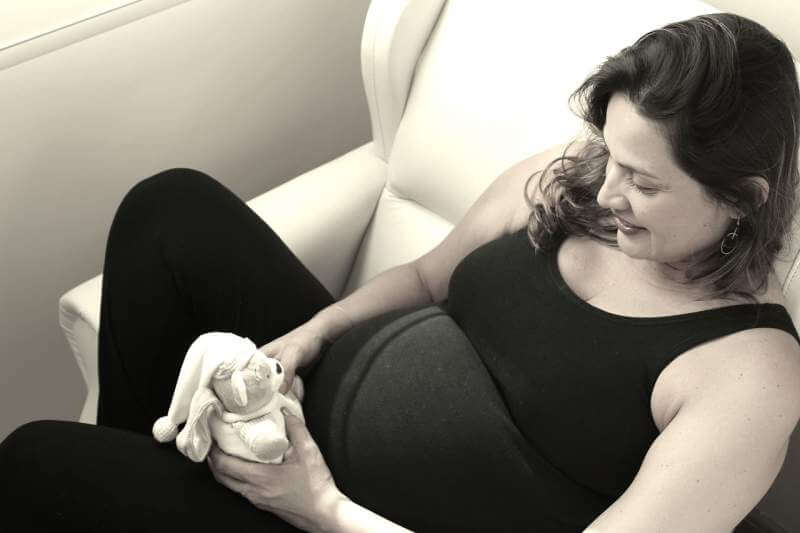Becoming pregnant and delivering a healthy baby is a blessing that many women live to enjoy. Cute little fingers and toes, beautiful eyes, and toothless smiles are some of the things mothers treasure. However, this big life event (pregnancy) comes with a roller-coaster of emotions at different stages.
The typical response when you ask for mental health support from friends or family, and sometimes your spouse during pregnancy, would be –”‘it is part of the process”. However, this is a myth! Mental health is critical in pregnancy, and it should be addressed with utmost professionality and attention to prevent harm to the mother and the baby.
Mental Health vs. Pregnancy

Did you know that poor mental health can affect the ability of a woman to become pregnant? According to the Office of Women Health, hormones can affect women’s moods and emotions in multiple ways throughout their lifetime. Women with mental health conditions may develop symptoms related to menopause or their menstrual cycle.
So let’s get down to some facts:
- Monthly menstrual cycles are welcomed with a series of rising and falling levels of particular hormones. These hormone levels might affect the way you physically and mentally think and feel. Negative vibes such as anxiety, stress, and depression can affect hormones that control ovulation which will dim down your chances of conceiving. The mental health conditions can cause premenstrual syndrome (PMS), premenstrual dysphoric disorder (PMDD), or irregular periods.
- Hormonal changes during pregnancy can cause a relapse of specific mental health conditions. Pregnant women with mental health conditions are also at a higher risk of getting complications. Some regressions include depression, eating disorder, obsessive-compulsive disorder (OCD), anxiety disorder, and bipolar disorder.
- Some mental health conditions might affect your ability to become pregnant.
- Medication on mental health conditions such as antidepressants can reduce the chances of conceiving. However, others will not decrease your chances of becoming pregnant. Similarly, some drugs are safe while breastfeeding, and others should be stopped or changed for your child’s sake.
- Women who stop or reduce their intake of psychiatric medications for bipolar disorder, depression, or other mental disorders during pregnancy might experience additional or increased symptoms of their mental illness.
- Parental anxiety and depression can cause neglectful behaviors that might lead to future mental health issues with the baby. Even though this can still happen during pregnancy. Research shows that depressed pregnant women are likely to give birth to underweight babies.
- During pregnancy, mental health conditions can lead to excessive drinking of alcohol, smoking, or other substance abuse that might affect the health of the unborn child.
Common Mental Health Condition during Pregnancy

Some of the common mental illnesses that pregnant women can be faced with include:
- Depression – A sad feeling all the time
- Post-traumatic Stress Disorder (PTSD) – Nightmares, intense distress, and flashbacks of a past experience. It might be a pregnancy gone wrong, an abusive incident, or traumatic birth.
- Panic disorder – Sudden attacks of fear or panic
- Obsessive-compulsive disorder (OCD) – Obsessive thoughts & compulsive behavior.
- Tokophobia – Intense fear or delivering the baby
- Eating disorder – Eating unhealthy foods, more or fewer amounts.
We’ve now learned how mental health conditions might have drastic effects before and after pregnancy. This paints out why mental health support is important. In that respect, sound mental health is suitable for women trying to get pregnant and nursing mothers. However, the primary question is – what practices help mental health support?
Steps to Take to Support Good Mental Health Before and After Pregnancy

There are two significant mental health support resources that you can use to save both you and the baby before and after pregnancy. The step you’ll take will depend on the severity of the condition and any existing mental health support in pregnancy that you are taking. These options are:
Natural Remedies and Lifestyle Changes

There are many alternatives to mental health support for parents. It all depends on what works for you and how positively it will change your mental health condition. Some prefer to own the best pepper spray gun and shoot their stress out, while others get into a yoga class to practice mindfulness. Regardless of your preference, here are the choices you’ve got:
- Sleep to get enough rest. It’ll help in clearing your mind and improve your mood.
- Take fish Omega 3 Fatty Acids to reduce depression and anxiety for the new moms.
- Enjoy some baby breaks since the time offs will help you get some ‘you time.
- Take a relatively good amount of liquids throughout the day.
- Opt for healthy foods that will help in your recovery and general health for you and the baby.
- Exercise. What exercise is good for mental health? Try walking and breathing exercises are some of the best alternatives.
- Enjoy some adult time to maintain your meaningful relationships with other people.
- Maintain a generally happy mood. Laugh and cut yourself some slack.
- Look for someone you can be transparent are real with. It would be best to share your troubles, and having someone to give you that listening ear is critical to your healing process.
- Allow yourself to care for the baby the way that best suits you. It relieves the pressure from your family and friends on what you should do or not.
Medication and Therapy

What are mental health services? These are medical measures taken to improve the symptoms of mental health conditions in pregnant and nursing mothers.
Medication involves multiple tests to ensure that you don’ put yourself or the baby at risk with the drugs you’ll be taking. It’s the reason many people don’t opt for this alternative.
On the other hand, therapy seems to work for many. You get to sit with a professional and work on your issues one by one as you address all possible causes and potential measures to treat the condition.
Sometimes, therapy can involve a group of people undergoing the same issue, and the healing comes from listening to the different stories and getting encouragement and advice from personal experiences. This is the most common type of therapy that pregnant women use as their mental health support training.
The Don’ts

As straight as the mental health support resources sound, some people get things wrong in the entire process. Here is a list of the things that you shouldn’t attempt at any cost:
- Don’t make comparisons between you and other moms. Everyone gets a personalized pregnancy experience.
- Don’t be afraid to express your feelings to healthcare experts. Their job is to listen and support you through the process.
- Don’t abuse alcohol, cigarettes, or any other substances. They will make the condition worse by day.
Conclusion
It is important to take care of your mental health before and after pregnancy. It will help you increase your chances of getting pregnant, keep and deliver a healthy baby, and raise them comfortably. You should have a reliable contact to reach out to if there is anything you want to share about your experience.
Are you trying to get a baby, pregnant, or raising one? Do you have trouble coping with your mental health condition?
Leave a comment.
Author’s Bio:
Rachel Hudson is a journalist and blogger living in California. She has two kids, and she is a victim of depression during her second pregnancy. Ever since she has committed herself to help other women with similar issues. During her free time, Rachel cooks and sings for the old in nursing homes.
Reference:
